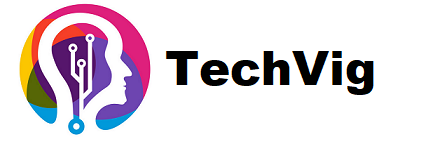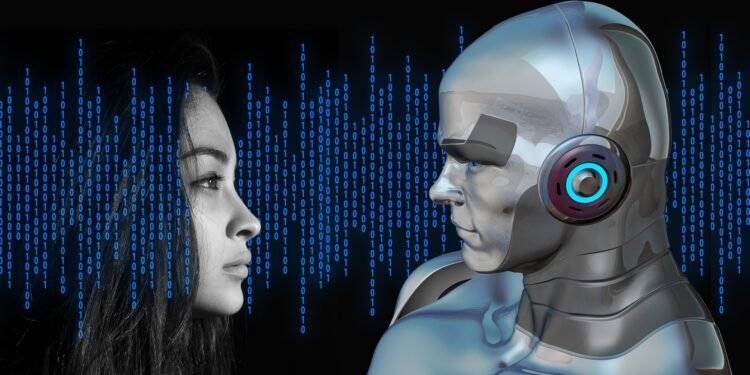There is growing unknown fear among the folks of what AI might bring. It often comes from the more imaginative Hollywood narratives. Is AI gonna steal my jobs? Will robots harm people? Or, machines will take over the world? Are some of the common questions, that had a huge debate and yet more mysterious.
Before heading further, please check our previous articles in the series:
What’s the Fear?
The undergirding fear is that AI systems will become more powerful than human intelligence and capabilities, and will establish a new hierarchical order of control in which machine systems determine the plan, and direct or force human choices, actions, and activities.
The concept of a singularity (i.e. a wholly unified, integrated meta-intelligent and meta-functional cyber-linked systems-set) that acquires the sum of all recorded human knowledge, all human-related information, and gains access and control of all human technologies, and therefore all human tools, tasks, and options, prompts fears of human subordination and subjugation, in the various rise of the machines-type scenarios.
AI vs Human Intelligence:
Properties, functions, and capabilities of AI can be similar (if not identical) to, or different from those of human intelligence (HI). Often differences exist in the type and extent of data that AI and HI can process and integrate. At present, for example, AI has shown the ability to process and analyze vast quantities and diverse types of data to generate algorithms for prediction, decision-making, and outcomes reliability, in scope and pace that are superior to HI.
On the other hand, HI demonstrates capabilities of inductive and deductive discrimination (eg- object and subject familiarity/recognition; meaning inference in tonality – what is known as “prosody”; and implicit meaning and valuation) more capably than AI. In an ideal HI-AI system interface, the differing capabilities of the two entities would be reciprocally compensatory and complementary, and in this way “de-limit” or “de-constrain” each other’s weak relative weak points and abilities, thereby creating a true synergistic (rather than merely summative) integral operating system.
For human intelligence, logic is easy, while AI is good at expressing. The expression is “Drawing the details of a building based on the building’s image, logic diagram, and the building’s statistical condition of the building”. For AI, the expression is an easy question.
From a control perspective, humans can multitask and handle a large number of signals. In contrast, machine intelligence is programmed to perform a fixed task and process a small number of signals. However, machine intelligence has a more extended time prediction horizon than humans.
Is AI cleverer than humans?
AI operates under particular limitations defined by the algorithms that dictate its behavior. Some types of problems map well to AI’s skill sets, making specific tasks relatively easy for AI to complete. But most things do not map to that, and they’re not applicable.
When fed vast amounts of data (typically hundreds of thousands or millions of examples), AI can leverage that pattern matching to extraordinary effect, doing some things much better than people can. For instance, it can recognize millions of faces, rather than the few hundred we can. It can compose original music that sounds pleasant. It can drive a car in a broadening set of environments. but most things need human involvement to make the algorithm work. AI can achieve impressive results but within clear boundaries.
But despite exceeding human capabilities in many narrow applications, it does not have the general intelligence about the world that we do.
Why there is a fear among the folks?
The fear comes from media, science fiction books, movies, and some of the prominent voices like Elon Musk, Stephen Hawking expressing concerns about AI. So people are afraid that AI would become conscious and overthrow humanity. The fear comes from misconceptions about what AI is.
It is like learning that an alien race is on its way to visit us. We don’t know when they will get here, what they look like, or whether they are friendly. But we believe they must have far exceeded our capabilities in many ways. AI is on a path to be that alien race.
Is all that fear worth it?
The fear is all about the ‘artificial general intelligence (AGI)’, which would be AI that may eventually run at a petaflop clock rate. If you add quantum computing to the mix, the capabilities of AI become unimaginable. Capable of a broad understanding of the real world that a human possesses. Much research indicates that if we had AGI, it would be hard to stop it from evolving into ‘artificial superintelligence (ASI)’ when it would be many times smarter than Einstein.
Artificial general intelligence (AGI) lies an unknown distance in the future. I frankly can’t envision this happening soon, so till then, AI will stay limited to a single data-driven environment model. There is absolutely no progress in the research of AI reaching consciousness. And the fear is not worth it.
Conclusion:
AI is great but it’s not about to replace human intelligence. As good as AI is, it can’t yet add the depth of emotion and talent which goes into true creativity. Although AI is an excellent tool for augmenting human capabilities. While AI will no doubt advance in leaps and bounds in the next five to ten years, human-only skills and traits will still be very much in demand.
Co-Contributers:
1# Prof. James Giordano Ph.D., Director of Biotechnology, Biosecurity, and Ethics at the Cyber-SMART Center, Georgetown University, Washington, DC.
2# Peter Scott is a futurist who writes, speaks, and teaches about the impact of exponential technology. He has given a 2020 TEDx talk, “How to Save Us From Being Left Behind by AI” and briefed a committee in the British parliament. His podcast “AI and You develop these themes through fascinating dialogues with expert guests.
3# Michael Yurushkin A P.h.D in applied mathematics and computer science. Expert n Deep Learning, specifically its application in Computer Vision, NLP, Reinforcement Learning. Senior lecturer at SFEDU and Founder and CTO at broutonlab.com.
Thanks for reading, let us know your views in the comment section. Please like and follow us on Twitter and Facebook for more latest updates from techlurn.







